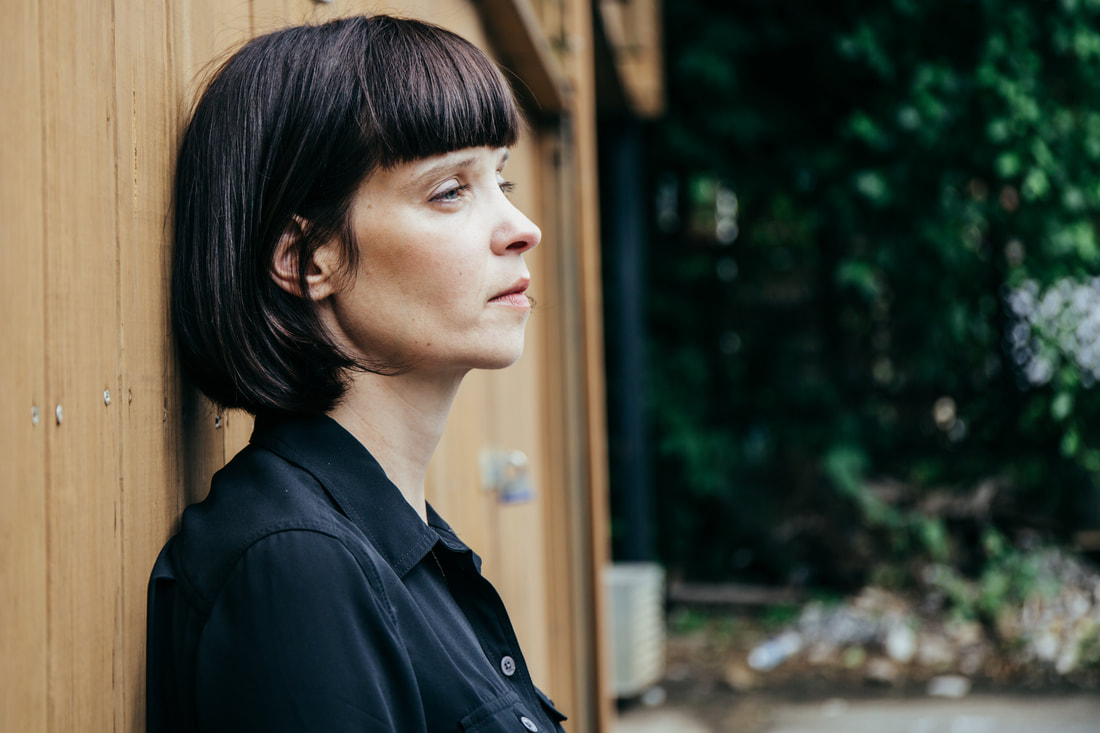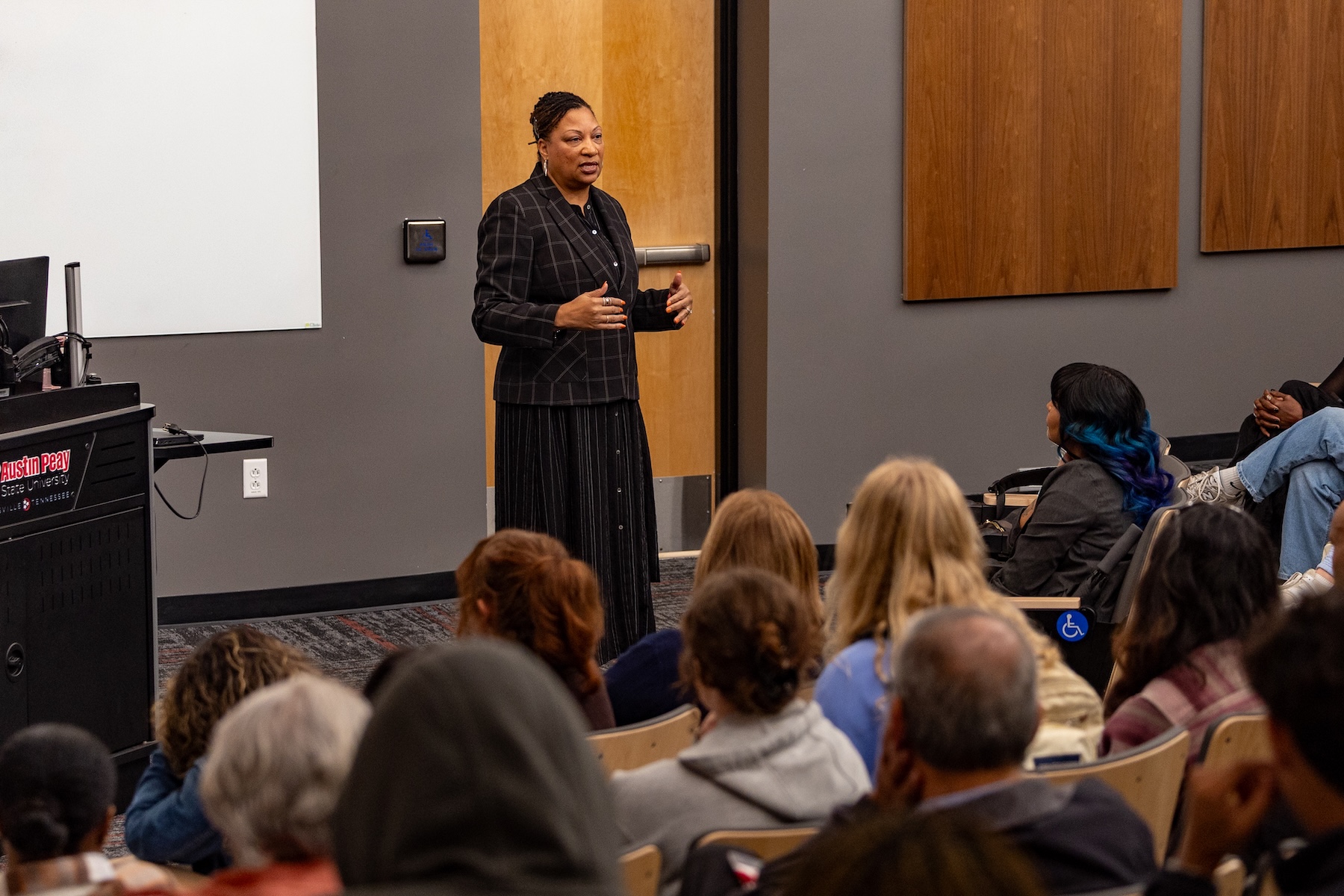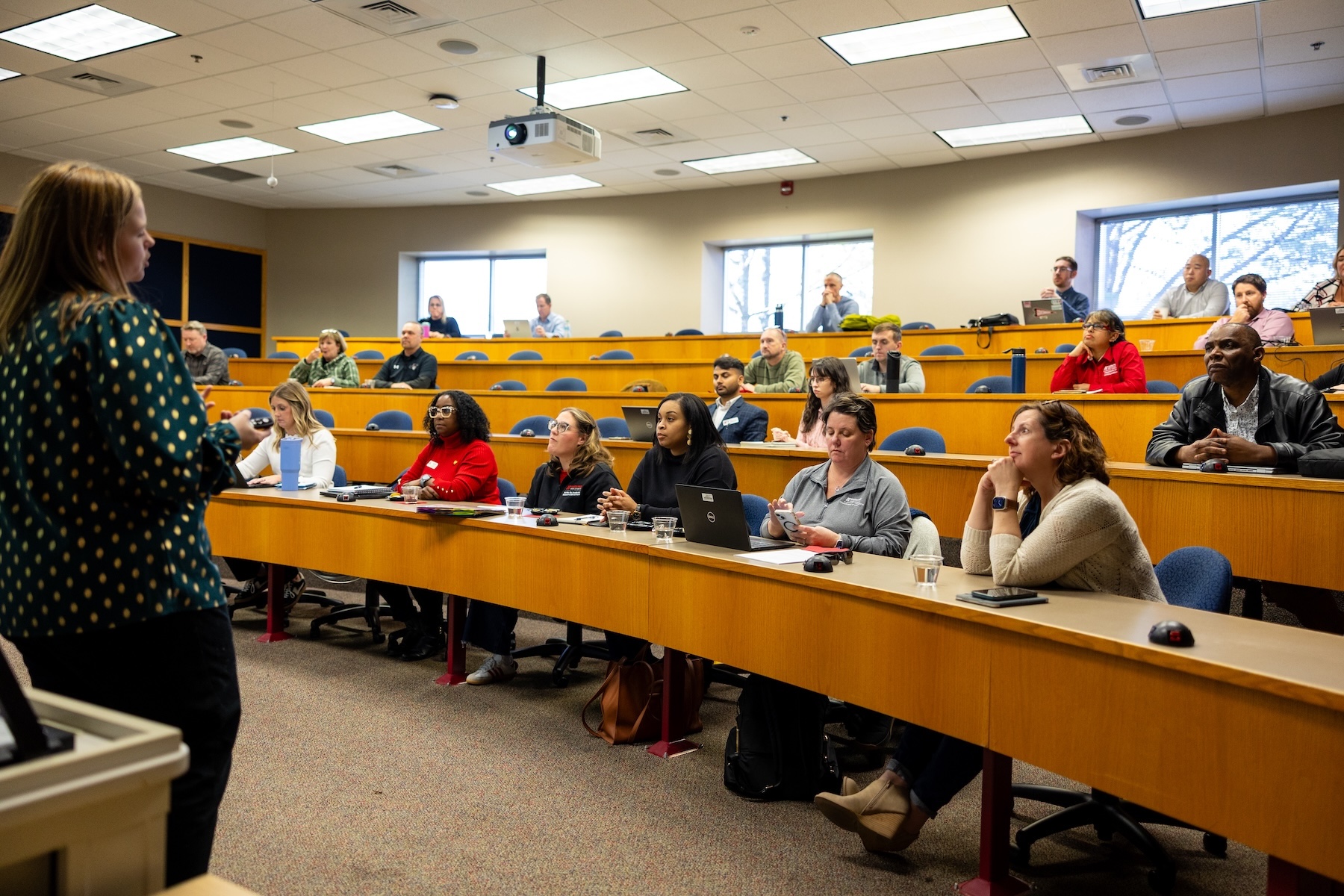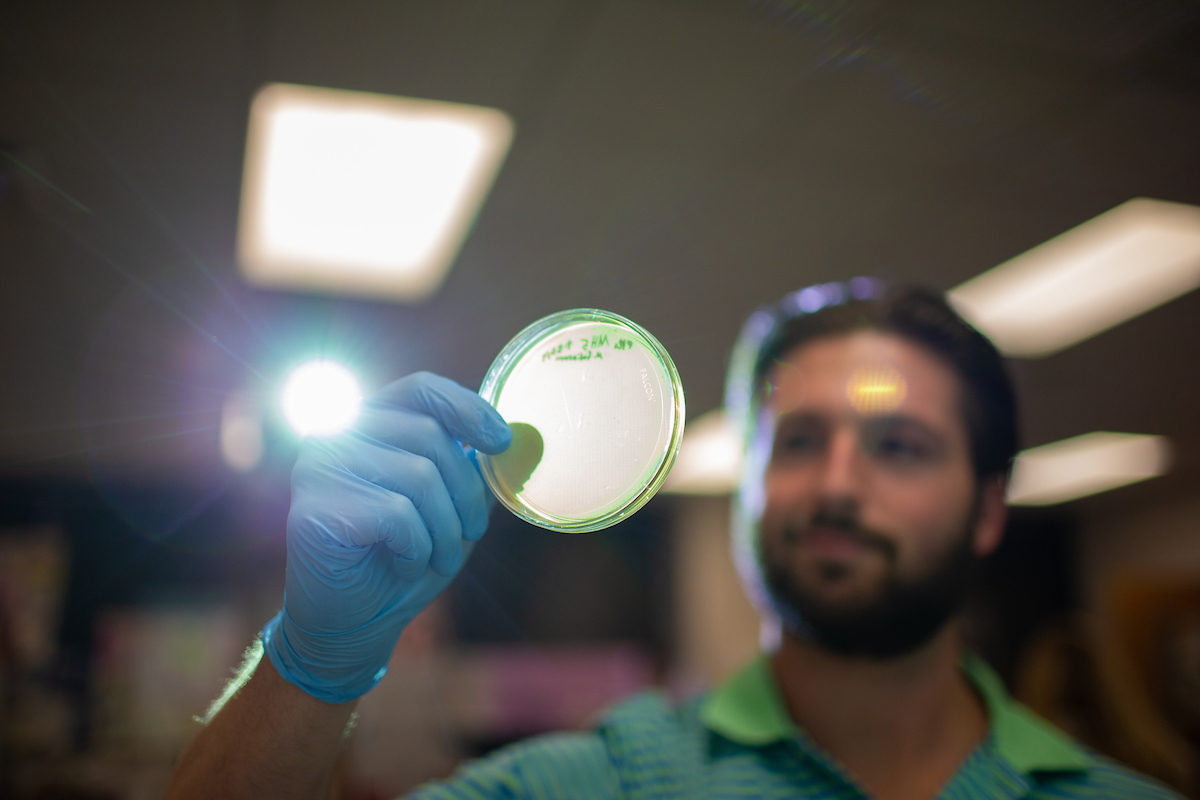Austin Peay students, professors publish paper about recent work with bacteriophages
(Posted April 9, 2021)
Austin Peay biology students and professors continue to find success in their work with bacteria-infecting viruses called bacteriophages.
This spring, 11 undergraduate and graduate students worked with APSU’s Dr. Sergei Markov to publish a paper that shares the team’s work with the three bacteriophages they found in Clarksville and lovingly named Danno, Otwor and Scumberland. Drs. James Church and Leong Lee from APSU’s Department of Computer Science and Information Technology helped with the paper, which was published in the Microbiology Resource Announcements journal.
Two of the students who worked on the paper – Robin Zimmer and Heath Simpson – will present the work at the annual SEA Symposium April 9-11.
The paper, titled “Complete Genome Sequences of Microbacterium Bacteriophages Danno, Otwor and Scumberland, Isolated in Clarksville, Tennessee,” was published in “Microbiology Resource Announcements,” a peer-reviewed journal of the American Society for Microbiology.
The students, in addition to Zimmer and Simpson, who co-authored the paper are Cole M. Bell, Sarah D. Binkley, Kevin M. Bouma, Kaitlin M. Hutson, Gregory S. Markov, Elizabeth C. Mason, Gabrielle B. Rueff, Taiwo O. Sennuga and Diana G. Villalpando.
32 students have joined research

More than 30 students have worked with Markov since he launched Austin Peay’s participation in the SEA-PHAGES program in 2019.
During that fall semester, several students found the phages from around Clarksville, including on campus. The next spring, another group of students annotated the phage genomes.
By September 2020, Markov and the students had successfully entered the DNA sequences of the three phages into the National Institutes of Health genetic sequence database known as GenBank. You can find Austin Peay’s phages simply by searching their names – Danno, Otwor and Scumberland.
Markov has nine students this semester in his phage genomics/bioinformatics class, and they’re annotating a new phage named SadLad. Markov’s students’ work last fall also led to the entry of another phage, named Albright, into the GenBank.
Markov has submitted a proposal to make the genomics/bioinformatics class a regular APSU biology class.
“My plans are to teach the genomics/bioinformatics class frequently,” he said. “I am expanding genomics/bioinformatics for other biological entities such as other viruses. We are using the same principles that the genome annotation students learned in the phage program for annotating these viruses.”
Phages are bacteria-killing viruses. They’re harmless to humans, and scientists can study them easily. They’re everywhere. More than a nonillion phages – that’s 1 followed by 30 zeros – exist on Earth in dirt, water and air.
To learn more
- For more about the APSU Department of Biology, go to https://www.apsu.edu/biology/.
- For more about the APSU Department of Computer Science and Information Technology, visit https://www.apsu.edu/csci/.
- To read more about GenBank, visit https://www.ncbi.nlm.nih.gov/genbank/.
- For more about the SEA-PHAGES program, go to https://seaphages.org/.
News Feed
View All News
Austin Peay State University's Zone 3 Press, with support from the Center of Excellence for the Creative Arts, is hosting NEA Creative Writing Fellowship recipient and award-winning writer Toni Jensen for a free public reading and book signing at 7 p.m. on Thursday, Feb. 19, in Art + Design Room 120.
Read More
David Hogan of Ribbon Communications and David "Buck" Dellinger of the Clarksville-Montgomery County Economic Development Council (EDC) will share their real-world perspectives on leadership, innovation, and career development during this semester's speaker series.
Read More
Title III grant funding recently allowed 16 faculty members from across campus to participate in the Career Readiness Academy, an extended workshop series focused on labor market tools, curriculum development, and National Association of Colleges and Employers (NACE) competencies.
Read More